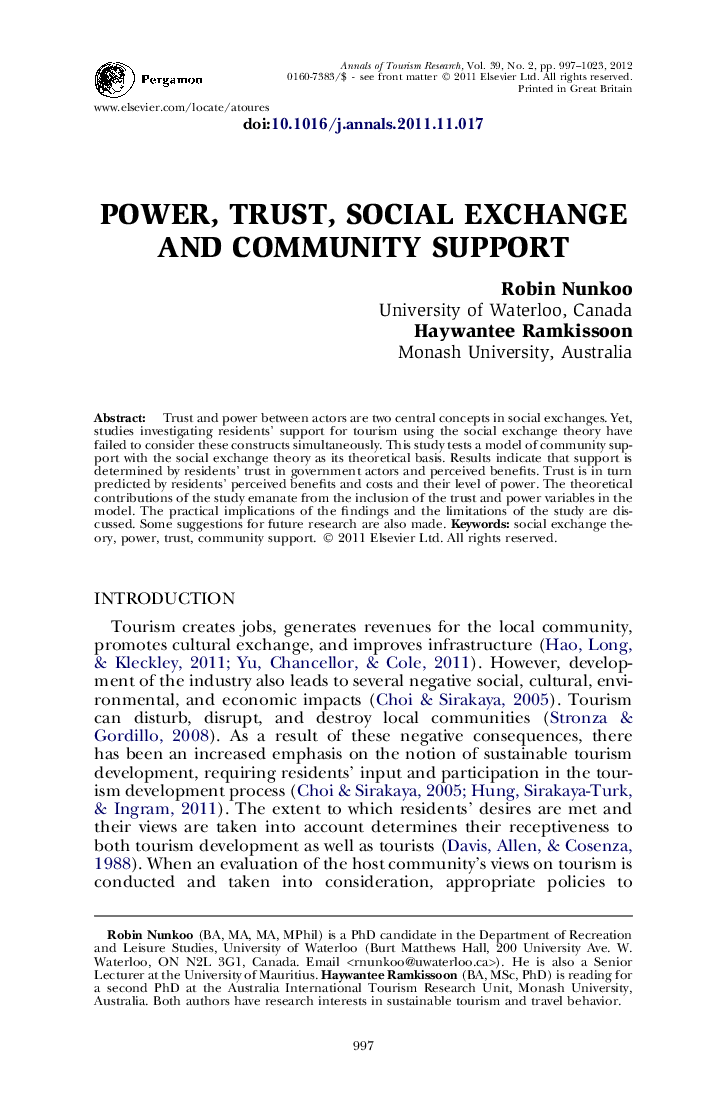| Article ID | Journal | Published Year | Pages | File Type |
|---|---|---|---|---|
| 1007426 | Annals of Tourism Research | 2012 | 27 Pages |
Trust and power between actors are two central concepts in social exchanges. Yet, studies investigating residents’ support for tourism using the social exchange theory have failed to consider these constructs simultaneously. This study tests a model of community support with the social exchange theory as its theoretical basis. Results indicate that support is determined by residents’ trust in government actors and perceived benefits. Trust is in turn predicted by residents’ perceived benefits and costs and their level of power. The theoretical contributions of the study emanate from the inclusion of the trust and power variables in the model. The practical implications of the findings and the limitations of the study are discussed. Some suggestions for future research are also made.
► The study extends the use of social exchange theory. ► Support is influenced by residents’ trust in government and perceived benefits. ► Trust is predicted by perceived benefits and costs and residents’ level of power. ► Residents’ power positively influences their trust in government actors. ► Perceived benefits and costs are predicted by residents’ power in tourism.
